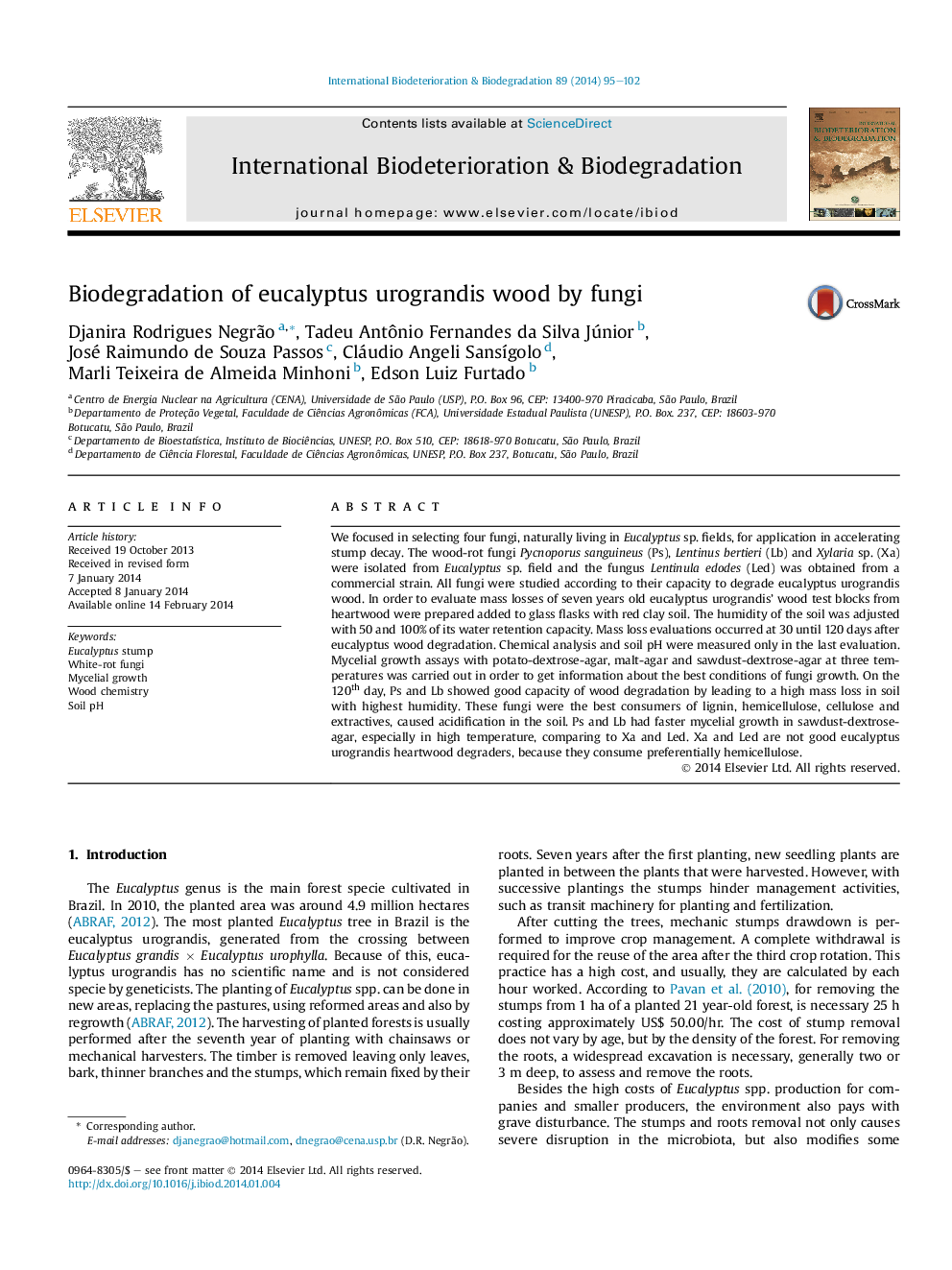| کد مقاله | کد نشریه | سال انتشار | مقاله انگلیسی | نسخه تمام متن |
|---|---|---|---|---|
| 4364843 | 1616327 | 2014 | 8 صفحه PDF | دانلود رایگان |
• Procedures for assessing Eucalyptus spp. stumps decay in the field are proposed in this study.
• The procedures must be applied only to fungi naturally found in Eucalyptus spp. wood.
• High water content in the soil increase wood decay caused by some fungi.
• Some fungi can cause soil acidification according to water content in the soil and wood based substrate.
We focused in selecting four fungi, naturally living in Eucalyptus sp. fields, for application in accelerating stump decay. The wood-rot fungi Pycnoporus sanguineus (Ps), Lentinus bertieri (Lb) and Xylaria sp. (Xa) were isolated from Eucalyptus sp. field and the fungus Lentinula edodes (Led) was obtained from a commercial strain. All fungi were studied according to their capacity to degrade eucalyptus urograndis wood. In order to evaluate mass losses of seven years old eucalyptus urograndis' wood test blocks from heartwood were prepared added to glass flasks with red clay soil. The humidity of the soil was adjusted with 50 and 100% of its water retention capacity. Mass loss evaluations occurred at 30 until 120 days after eucalyptus wood degradation. Chemical analysis and soil pH were measured only in the last evaluation. Mycelial growth assays with potato-dextrose-agar, malt-agar and sawdust-dextrose-agar at three temperatures was carried out in order to get information about the best conditions of fungi growth. On the 120th day, Ps and Lb showed good capacity of wood degradation by leading to a high mass loss in soil with highest humidity. These fungi were the best consumers of lignin, hemicellulose, cellulose and extractives, caused acidification in the soil. Ps and Lb had faster mycelial growth in sawdust-dextrose-agar, especially in high temperature, comparing to Xa and Led. Xa and Led are not good eucalyptus urograndis heartwood degraders, because they consume preferentially hemicellulose.
Journal: International Biodeterioration & Biodegradation - Volume 89, April 2014, Pages 95–102
